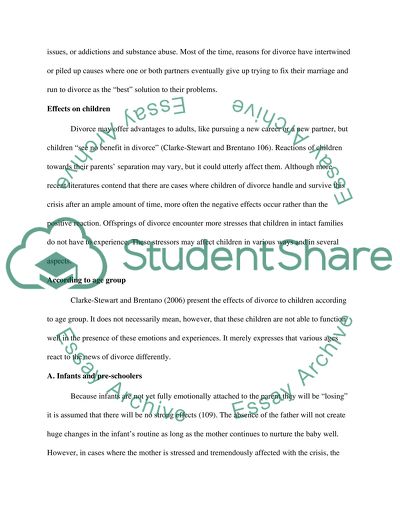Cite this document
(“Are Children Harmed by Divorce Research Paper Example | Topics and Well Written Essays - 1750 words”, n.d.)
Retrieved from https://studentshare.org/family-consumer-science/1408313-are-children-harmed-by-divorce
Retrieved from https://studentshare.org/family-consumer-science/1408313-are-children-harmed-by-divorce
(Are Children Harmed by Divorce Research Paper Example | Topics and Well Written Essays - 1750 Words)
https://studentshare.org/family-consumer-science/1408313-are-children-harmed-by-divorce.
https://studentshare.org/family-consumer-science/1408313-are-children-harmed-by-divorce.
“Are Children Harmed by Divorce Research Paper Example | Topics and Well Written Essays - 1750 Words”, n.d. https://studentshare.org/family-consumer-science/1408313-are-children-harmed-by-divorce.


